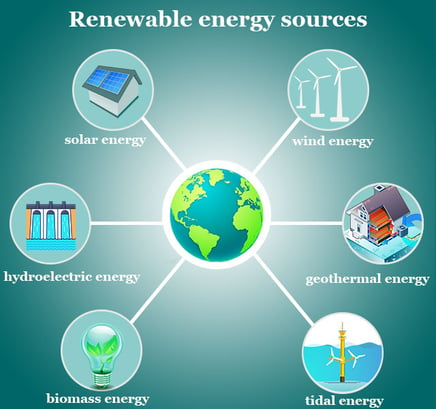Flagship / Preferred Projects
Renewable Energy
for Funding & Management


Renewable energy comes from unlimited, naturally replenished resources, such as the sun, tides, and wind. Renewable energy can be used for electricity generation, space and water heating and cooling, and transportation.
Renewable energy sources, such as biomass, the heat in the earth’s crust, sunlight, water, and wind, are natural resources that can be converted into several types of clean, usable energy.
Benefits of Renewable Energy brings businesses, individuals, governments and countries, to name a few. Renewable energy offers numerous economic, environmental, and social advantages. These include: 1) Reduced carbon emissions and air pollution from energy production 2) Enhanced reliability, security, and resilience of the power grid 3) Job creation through the increased production and manufacturing of renewable energy technologies 4) Increased energy independence 5) Lower energy costs 6) Expanded energy access for remote, coastal, or isolated communities.
Non-renewable energy in contrast, comes from finite sources, such as coal, natural gas, and oil are fossil fuels. These energy sources that will run out or will not be replenished in our lifetime. It is recommended: By 2050, the world must increase renewable energy production six-times to maybe eliminate fossil fuels under constant demand.
Flagship / Preferred Projects
